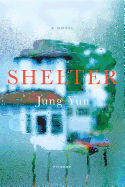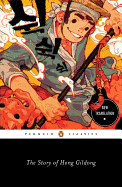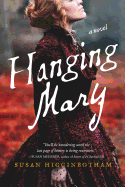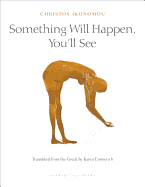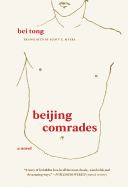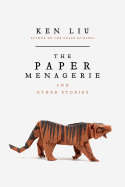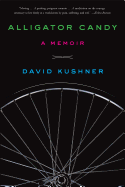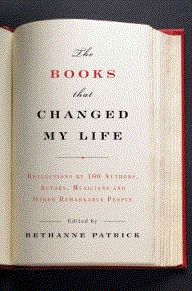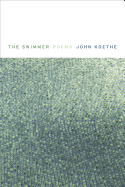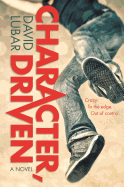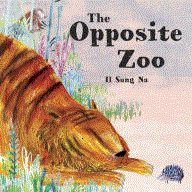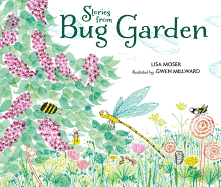Nonfiction
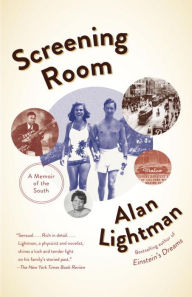 Screening Room: Family Pictures by Alan Lightman (Vintage, $16)
Screening Room: Family Pictures by Alan Lightman (Vintage, $16)
The death of an elderly uncle prompts Alan Lightman to return to Memphis four decades after he left, and the reminiscences inspired by that loss are the foundation for his elegiac memoir. His memories flicker like the light from an old movie projector he meticulously describes in one of the book's many artfully constructed scenes.
American Ghost: A Family's Haunted Past in the Desert Southwest by Hannah Nordhaus (Harper Perennial, $15.99)
For decades, stories have circulated that the historic La Posada Hotel in Santa Fe, N.Mex., is haunted. Part of the hotel was once a private home, and the ghost is supposed to be former resident Julia Schuster Staab, great-great-grandmother of journalist Hannah Nordhaus. The supernatural elements are entertaining, and Nordhaus's chronicle of her unlikely pioneer ancestors is fascinating and frequently surprising.
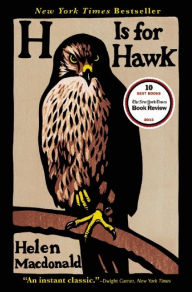 H Is for Hawk by Helen Macdonald (Grove, $16)
H Is for Hawk by Helen Macdonald (Grove, $16)
British poet and naturalist Helen Macdonald, inconsolable after her father's sudden death, had a recurring memory of a goshawk she'd seen while working at a bird-of-prey center. In H Is for Hawk, she shares her decision to adopt one, Mabel, and her months-long dedication to training this fiercest of creatures.
Eating Viet Nam: Dispatches from a Blue Plastic Table by Graham Holliday (Anthony Bourdain/Ecco, $15.99)
Graham Holliday, the Noodlepie blogger, takes readers on the ultimate food safari on the streets of Vietnam. He follows his nose through the hidden alleyways of Hanoi and Saigon, tasting testicles and entrails, devilish moonshine from cobras, bears and lizards, along with more sedate fare like iced coffees and teas.
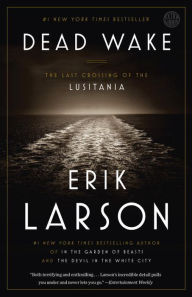 Dead Wake: The Last Crossing of the Lusitania by Erik Larson (Broadway, $17)
Dead Wake: The Last Crossing of the Lusitania by Erik Larson (Broadway, $17)
In May of 1915, a torpedo fired from a German submarine struck the RMS Lusitania, a British passenger ship with nearly 200 Americans aboard, an event that helped push the United States to enter World War I. In his usual entertaining and detailed style, Erik Larson examines the final days aboard the Lusitania and related events and characters in Dead Wake.
Rust: The Longest War by Jonathan Waldman (Simon & Schuster, $16)
In this entertaining, quirky tour through the landscape of oxidation and other forms of corrosion, Jonathan Waldman introduces readers to people obsessed with documenting, studying and circumventing rust's destructive effects. It's full of stories about decaying structures, heroic solutions and characters whose egos and shortsightedness made bad problems worse.
Fiction
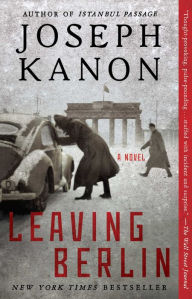 Leaving Berlin by Joseph Kanon (Washington Square Press, $16)
Leaving Berlin by Joseph Kanon (Washington Square Press, $16)
In this Cold War thriller set in 1949 Berlin, an American writer--a Jewish refugee from Nazi Germany--quickly learns his role as a CIA spy. But what awaits him defies even his imagination as a writer: a botched kidnapping, the murder of an East German agent and encounters with friends from his past thrust him into danger and intrigue.
The Love Song of Miss Queenie Hennessy by Rachel Joyce (Random House, $16)
The companion novel to The Unlikely Pilgrimage of Harold Fry is every bit as affecting, sweet and sad. Harold remains off-screen in The Love Song of Miss Queenie Hennessey, in which Queenie replies to the postcards he sent her in Pilgrimage. She has written to him from hospice care, sharing the news of her impending death.
The Sellout by Paul Beatty (Picador, $16)
The Sellout is an over-the-top fable of a young black man street-named Bonbon who farms an urban tract in South Los Angeles. Beatty is funny as hell and offers a serious consideration of race through a relentless parade of stereotypes skewering blacks, whites, Mexicans, celebrities, Africans, even autistic kids. Behind the humor, however, Beatty asks important questions about racism and identity.
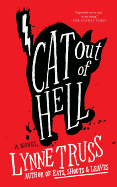 Cat Out of Hell by Lynne Truss (Melville House, $15.95)
Cat Out of Hell by Lynne Truss (Melville House, $15.95)
Roger--a sarcastic, well-read, talking cat who solves cryptic crosswords--is the star of Cat Out of Hell, an adventurous, gothic mystery novel that straddles a fine line between humor and horror, good and evil, life and death. Rich characterizations and inventive structure serve to enhance this endearing, insightful and often wicked novel.
The Bookseller by Cynthia Swanson (Harper Paperbacks, $15.99)
In 1962, Kitty Miller is a 30-something, single woman who co-owns a small Denver bookstore. Many women Kitty's age are married and raising families, but Kitty believes she is content and doesn't need anything more. Then one night she dreams of an alternate version of her life, the life she would have had if one phone call had lasted just a few minutes longer.
The Little Paris Bookshop by Nina George, trans. by Simon Pare (Broadway, $16)
Nina George's enchanting The Little Paris Bookshop deals with the nature of grief and the power of friendship, love and truth. The narrative centers on 50-year-old Monsieur Jean Perdu, who owns a bookstore called the Literary Apothecary--actually a floating barge "the length of three truck trailers" that houses 8,000 books, moored on the Seine.
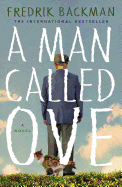 It's hard to say what goes into the secret sauce for the ideal book club pick--and, certainly, it varies by the personality of any given club. But A Man Called Ove is a book club favorite for many reasons: its perfect mix of humor and poignancy; its combination of the mundane and the philosophical; its knack for surprising readers with unexpectedly touching moments; the large and varied cast of characters; the big questions it asks about love and aging and family. Fredrik Backman's story of a curmudgeonly old man finding his place in a world he thought he was ready to leave behind hits all the right notes--and if your club is as enamored with Backman's writing style as I am, good news: his second novel, My Grandmother Asked Me to Tell You She's Sorry, sounds just as promising (and his third, Britt-Marie Was Here, is due on May 3 from Atria Books).
It's hard to say what goes into the secret sauce for the ideal book club pick--and, certainly, it varies by the personality of any given club. But A Man Called Ove is a book club favorite for many reasons: its perfect mix of humor and poignancy; its combination of the mundane and the philosophical; its knack for surprising readers with unexpectedly touching moments; the large and varied cast of characters; the big questions it asks about love and aging and family. Fredrik Backman's story of a curmudgeonly old man finding his place in a world he thought he was ready to leave behind hits all the right notes--and if your club is as enamored with Backman's writing style as I am, good news: his second novel, My Grandmother Asked Me to Tell You She's Sorry, sounds just as promising (and his third, Britt-Marie Was Here, is due on May 3 from Atria Books).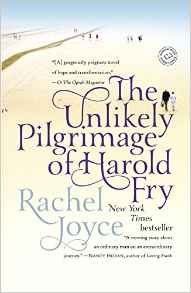 A book club that enjoyed A Man Called Ove might consider Rachel Joyce's 2012 debut novel, The Unlikely Pilgrimage of Harold Fry. While the two novels differ drastically in plot (Harold Fry is a retiree who decides to go on an impromptu walk across the entirety of England to deliver a letter), both celebrate the experiences of aging, reflecting on a life well-lived (or, in some instances, not so well-lived) and second chances. And if your club likes Pilgrimage, Joyce has written a companion novel, The Love Song of Miss Queenie Hennessey, about the recipient of Harold's hand-delivered letter.
A book club that enjoyed A Man Called Ove might consider Rachel Joyce's 2012 debut novel, The Unlikely Pilgrimage of Harold Fry. While the two novels differ drastically in plot (Harold Fry is a retiree who decides to go on an impromptu walk across the entirety of England to deliver a letter), both celebrate the experiences of aging, reflecting on a life well-lived (or, in some instances, not so well-lived) and second chances. And if your club likes Pilgrimage, Joyce has written a companion novel, The Love Song of Miss Queenie Hennessey, about the recipient of Harold's hand-delivered letter.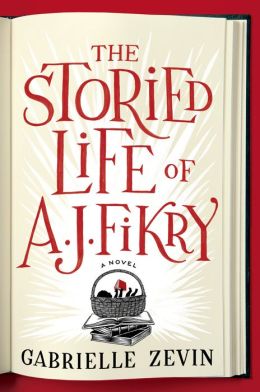



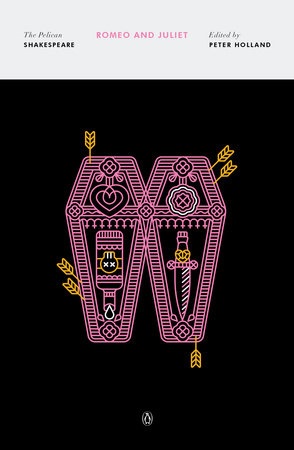 For more portable play-reading, and to mark Shakespeare's death, Pelican is re-releasing the Pelican Shakespeare Series, published by Penguin Classics, with new covers designed by Manuja Waldia. The first four come out March 29: Macbeth, King Lear, Romeo and Juliet, and Hamlet, with Twelfth Night and A Midsummer Night's Dream expected this summer, and plans for the full series to come out over the next few years. Each book includes updated essays and introductions guided by the 30 years of new Shakespeare scholarship undertaken since the series was first published. Waldia's covers are minimalist neon lines on black backgrounds with some clever reference to the play, like the arrow-studded coffins on Romeo and Juliet or two bleeding crowns enclosing a scepter and dagger for Macbeth, a striking style at once whimsical and grim, much like the plays themselves. --
For more portable play-reading, and to mark Shakespeare's death, Pelican is re-releasing the Pelican Shakespeare Series, published by Penguin Classics, with new covers designed by Manuja Waldia. The first four come out March 29: Macbeth, King Lear, Romeo and Juliet, and Hamlet, with Twelfth Night and A Midsummer Night's Dream expected this summer, and plans for the full series to come out over the next few years. Each book includes updated essays and introductions guided by the 30 years of new Shakespeare scholarship undertaken since the series was first published. Waldia's covers are minimalist neon lines on black backgrounds with some clever reference to the play, like the arrow-studded coffins on Romeo and Juliet or two bleeding crowns enclosing a scepter and dagger for Macbeth, a striking style at once whimsical and grim, much like the plays themselves. -- Screening Room: Family Pictures
Screening Room: Family Pictures H Is for Hawk
H Is for Hawk Dead Wake: The Last Crossing of the Lusitania
Dead Wake: The Last Crossing of the Lusitania Leaving Berlin
Leaving Berlin Cat Out of Hell
Cat Out of Hell